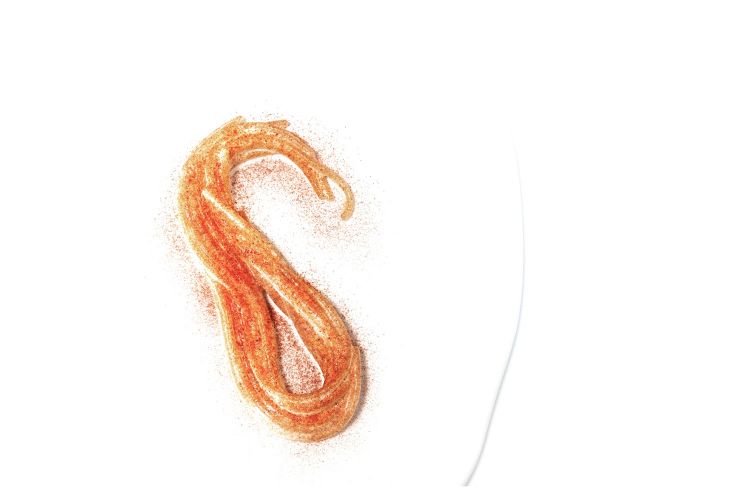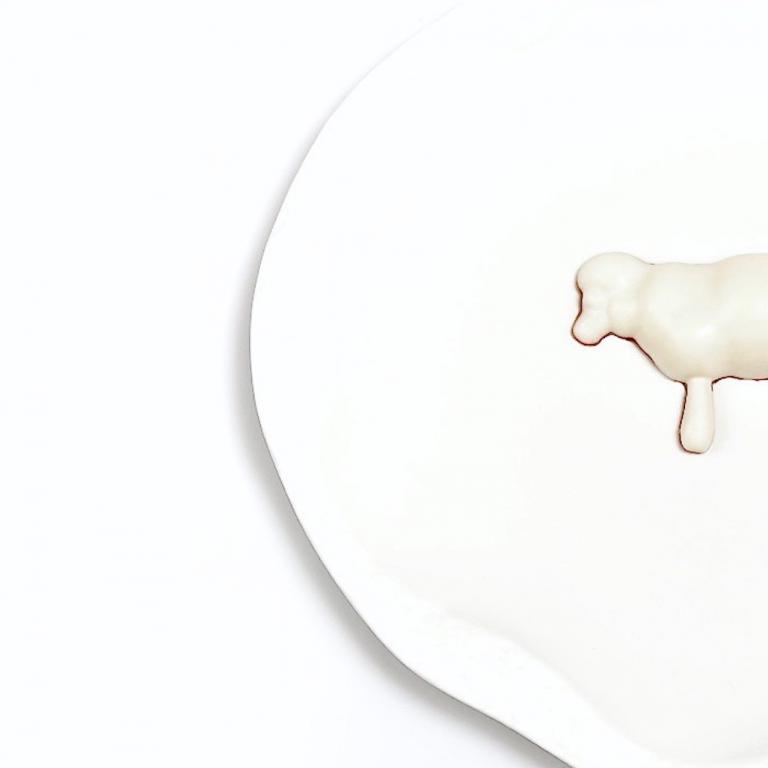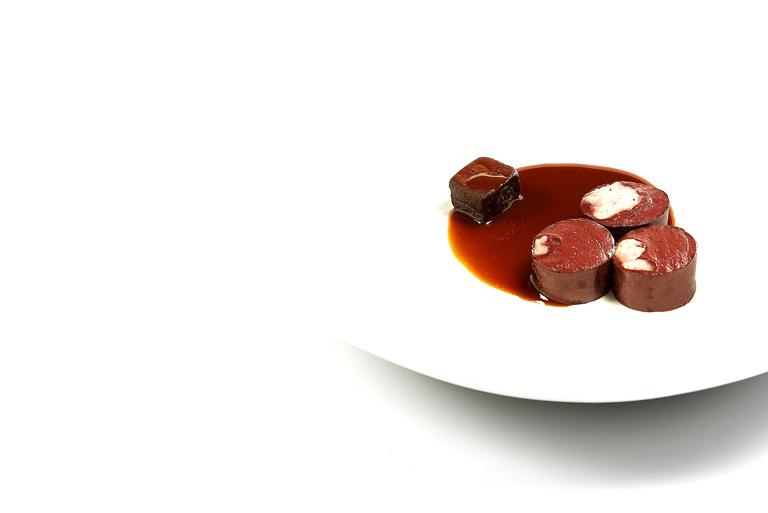Do, do, do, do, do, do, do, do, do
Do, do, do, do, do, do, do
Do, do, do, do, do, do, do, do, do
Do, do, do, do, do, do, do
Tonight I want to give it all to you
In the darkness
There's so much I want to do
And tonight I want to lay it at your feet
'Cause girl, I was made for you
And girl, you were made for me
The music of
I Was Made For Lovin' You by the
Kiss invades the stage of
Madrid Fusión – and will continue in the background throughout the lesson – because this is what the
Bros guys are, on top of great chefs: communication, provocation, inventive. The video begins: delicious-looking dishes and sensual images, stoves and red carpets, ancient ingredients and contemporary vision worthy of a
YouTube star «because we want to present cuisine to
millennials, just like ourselves. When we decided to open in Lecce, four years ago,
Isabella was 21, I was 26 –
Floriano Pellegrino explains – We had, and we have, an ambition: to place Salento on the map of international gastronomy. There was no gourmet culture here, tradition dominates. We wanted to create a tourist route (40% of the tourists are foreign): today people who come here spend 8 hours in Lecce and the surroundings. We want that to become 36 or 48 hours».
To do so, the first tool is surely cuisine: «We’re focusing on our identity of cuisine and thoughts». But then there’s more, in a sort of overall definition of what is a
millennial chef: «We have asked ourselves what new things we could offer, after
Ferran Adrià. What could be the contribution of our generation». The first answer is not technique, or creativity, or technology or ingredients; it’s a larger, multidisciplinary idea, and in this sense it is subversive: «It’s the new humanism of the contemporary chef: communication, management, identity, vision». Chefs who show themselves, play with images and even with erotism, they provoke a discussion, and hence demand attention. They become icons, and in a way they’re like brands for t-shirts, hats and balloons; they start this flourishing e-commerce; they even create a sports’ team -
Bros Rugby Club – on top of the " usual" experimental labs: «We’ve moved from being a gang to a holding where everything is a choice of style, even the way we dress. We had to become ambassadors of ourselves: we’ve taken the goal of communicating. In these past 4 years, in our kitchens we’ve had 400 young people, basically all foreigners. And we pay lots of attention to what happens on Instagram».
These are the debatable and debated
Bros, hated by many, because they move in a totally eccentric way compared to their colleagues. But even the routes they have taken in the kitchen are different – and unquestionable in their extraordinary character.
Floriano is the frontman,
Isabella Potì stays one step behind, harmonizing the verve of his partner and giving it substance through culinary concepts. He explains: «The creative process today for us means a background of flavours: going to the roots, using flavours as leverage to react to homologation» using the entire range of aromas, the menu in Lecce is divided into sections, starting with acidity – which is divided in turn into wintery more acetic acidity, the summer citrusy one, and rancid – then moving to umami and sweetness.
In the home of
jamón, with its marvellous, typical rancid notes, this flavour is the focus of the three dishes presented by
Potì.
Pellegrinoexplains: «Rancid becomes the element against cultural and palatal homologation. I remember my grandmother, when she made pasta with garlic, oil and chilli pepper, she seasoned it with a rancid oil. It was delicious. Why shouldn’t we like it? In general, why should it be no good?».
Hence the
Bros version:
Pasta, garlic, rancid fat, pipirussu: the cooked pasta is immersed in water, ice and salt, and thus preserves the perfect texture; of course it will be served cold, seasoned with the rancid fat from prosciutto, emulsified in milk, and then with a sauce of garlic confit in sunflower oil, and finally with three types of red peppers, sweet and hot. Summing up: «I’m not ashamed of my grandmother!», the meeting point between
Bros and tradition, future and past.

Pasta, garlic, rancid fat, pipirussu

Ricotta scante, sea urchin
Before the pasta,
Potì prepared a dish that I had tasted around one year ago, a total explosion of flavours, one of the best dishes tasted in 2019, now in a new more elegant presentation:
Ricotta scante, riccio. It’s a sheep’s milk ricotta that ferments for three months, acquiring a rancid note («I cannot present a Nordic style fermentation. Instead, I recuperate our ancient production processes»). Which is perfectly matched with the sea urchins from Santa Maria di Leuca, very tasty. At the time, I wrote: "Masterful. Oxidized, rancid, brackish, fermented aromas. Together they’d be almost impossible to imagine. Instead, it’s a blast for the palate".

Blood sausage, rancid chocolate
Third and last dish: Blood sausage, rancid chocolate. Isabella takes pork tripe, fills it with pieces of cow’s brain and pork blood seasoned with salt, pepper and milk. First, she cooks this in hot water at 90°C, then she grills it on the embers, cuts it and serves it with a sauce of meat and chocolate melted while adding rancid butter and a touch of espresso coffee. «Blood sausage follows an ancestral process. Nobody knows it any more. A gipsy who lives in Lecce told us how to make it». It’s a pure concentrate of flavours, the dish is finished with a black cube, made of oxidized banana. Super rich. «We believe it’s time to bring the values of the Mediterranean culture back in the frontline. By this we mean we want the balance of the world to move south»: Floriano Pellegrino didn’t use these words in Madrid but this was the gist.
Translated into English by Slawka G. Scarso